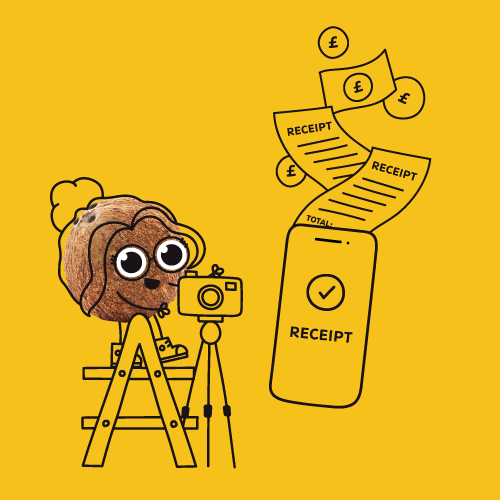From Self Assessment deadlines to payment on account dates, we’ve listed all of the key tax dates that you need to bear in mind when you're self-employed as a sole trader. Pop them in your diary to ensure you're always on top of your finances!
From tax return deadlines to payments on account, there are many more dates to keep on top of when you work for yourself—and with everything else you’ve got going on (y’know, your actual work) it can be hard to remember them all.
With that in mind, in this blog we’ve listed the key dates that you need to bear in mind throughout the tax year. They may not all be relevant to you, but it’s worth putting them in your diary in case your circumstances change at all.
And, as always, we'd always recommend speaking with an accountant if you're unsure about what you need to do.
Summary of key tax dates
5th October: Deadline to register for Self Assessment (for the first time)
31st October: Self Assessment deadline (by paper form)
30th December: Self Assessment deadline (for PAYE tax collection)
31st January: Self Assessment deadline (online); tax bill payment deadline; first payment on account due
5th April: End of previous tax year; deadline for claiming overpaid tax in previous years
6th April: Start of new tax year
31st July: Second payment on account due
Find more information about each of these deadlines below.
5th October - deadline to register for Self Assessment
You have until the 5th October after the end of the tax year in which you became self-employed to register with HMRC. The tax year runs from 6th April to 5th April.
This ensures HMRC is aware that you will be completing a tax return next year. You only have to do this once, so if you have done this before, you don’t have to do it again.
For example:
If you started working as self-employed on 1st May 2023, you will have until 5th October 2024 to register.
Find out more about registering as self-employed with HMRC.
31st October - deadline to return your paper Self Assessment
If you file your Self Assessment via a paper return rather than online, then midnight on 31st October is your deadline to do so.
Do keep in mind that 31st October is the date by which HMRC needs to have received your return, so make sure you allow for preparation and the post in your timings.
It’s also worth mentioning that when Making Tax Digital for Income Tax comes into effect in 2026, self-employed people will be required to complete four tax submissions per year instead of one, all using a digital solution. So, if you can, we’d suggest getting used to doing your tax returns digitally sooner rather than later.
For example:
If you choose to submit your 2022/23 tax return via the paper form, 31st October 2023 is your deadline to do so.
30th December - Self Assessment deadline (for PAYE tax collection)
If you’re running your own business alongside being employed by someone else, then the tax that you owe can be collected through your PAYE. To do this, you have to complete your Self Assessment by December 30th, and your tax bill must be less than £3,000.
Find out if you are eligible to pay this way.
For example:
If you choose to take this route for your 2022/23 tax return, 30th December 2023 is your Self Assessment deadline.
31st January - deadline to submit your online Self Assessment and pay your tax bill; first payment on account due
If you file your Self Assessment via the online form, then midnight on 31st January is your deadline to do so. And, as well as filing your return, you’ll also have to pay your tax bill.
If your Self Assessment bill is over £1,000 for that tax period, it’s likely that you'll be making 'payments on account' (read more about payments on account). And if it turns out that your two previous payments on account totalled more than you actually owed, then you’ll receive a tax rebate. On the flip side, if you earned more (and therefore owe more tax), you will also have to make a balancing payment on 31st January to make up the difference, as well as pay your first payment on account for the next tax year.
For example:
If you choose to do your Self Assessment for your 2022/23 tax return online, then 31st January 2024 is your deadline to submit it and pay any balance due. If you make payments on account, then by that same day, you will need to pay the balancing payment for your 2022/23 tax bill, as well as your first payment on account for the 2023/24 tax year (this will equate to 50% of this year's tax bill).
Please note that payments on account can come as a surprise if your first tax bill arrives and it's more than £1,000, as you'll have to pay your tax bill for the previous year as well as half of your tax bill for the next. Check out our article all about HMRC Self Assessment payments on account to ensure you don't get caught out by a hefty tax bill in your first year of self-employment.
5th April - deadline for claiming overpaid tax
As well as being the last day of the previous tax year, 5th April is also the last day that you can reclaim taxes that may have been overpaid in previous years. Your claim can go back by a maximum of four years.
More often than not, these things are picked up by HMRC, but if you spot anything, you can write a letter to HMRC ahead of the 5th April, or submit the claim in your next Self Assessment.
For example:
You have until 5th April 2024—the last day of the 2023/24 tax year—to reclaim any overpaid tax for each year going back to the 2020/21 tax year.
6th April - start of the new financial year
A new tax year always brings with it a new set of tax rates and thresholds to be aware of.
The beginning of the new tax year is also a good opportunity to get your finances in order for your next Self Assessment tax return. Whilst it isn’t due until the January of the following year, having everything ready ahead of time means you can avoid the pressure of the last-minute panic and make sure you’ve got enough money set aside to pay your tax bill.
For example:
On 6th April 2023, any new tax rates for the 2023/24 tax year will kick in.
You will also have from 6th April 2023 until the 31st January 2024 (unless you’re submitting your Self Assessment via the paper form or via PAYE, see above) to submit your 2022/23 tax return.
31st July - second payment on account due
If you’re required to make payments on account, then 31st July is the deadline for you to make your second payment.
For example:
On 31st July 2024, you will pay the second half of your 2023/24 tax bill up front (which, again, equates to 50% of your previous year's tax bill). In theory—i.e. if you earn the same amount in the 2023/24 tax year as you did in 2022/23—then you have now paid your 2023/24 tax bill in full.
Coconut's simple tax & accounting app
Did you know that Coconut makes it super easy for sole traders and landlords to track income, categorise expenses, send invoices, work out how much tax to set aside, and work with your accountant or bookkeeper (if you have one)? Sign up and try Coconut free for 30 days.





.png)






